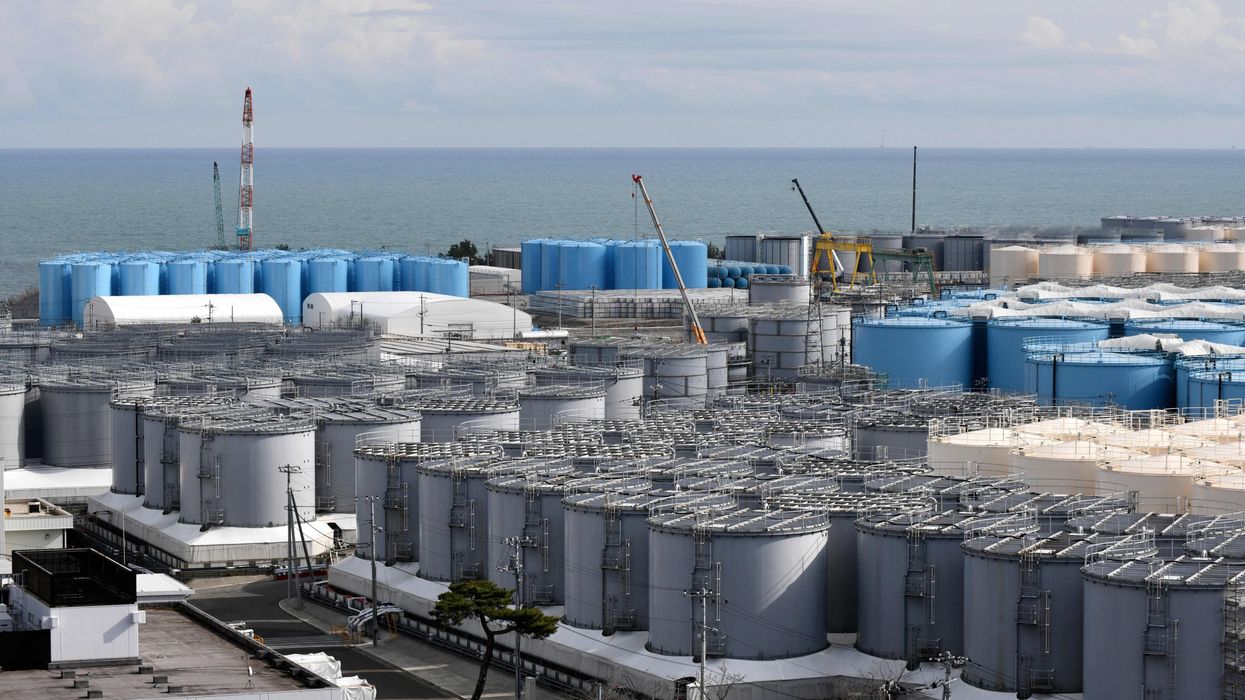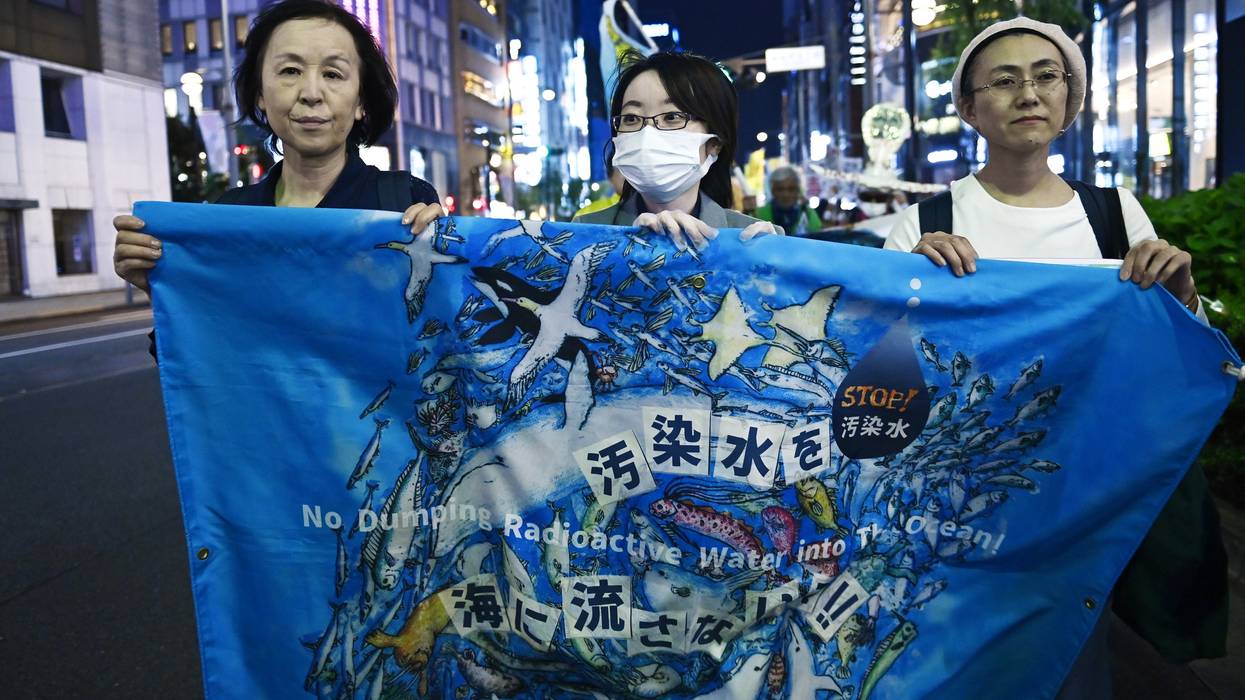The ministry's statement came in reaction to the International Atomic Energy Agency's (IAEA) approval on Tuesday of Japan's plan to gradually release more than 1 million metric tons of filtered Fukushima wastewater into the Pacific despite years of warnings from environmentalists and the overwhelming opposition of people in the wider region.
Tokyo Electric Power Company's (TEPCO) Fukushima Daiichi Nuclear Power Station, located about 150 miles northeast of the capital, was catastrophically damaged during the massive March 2011 earthquake and tsunami that caused meltdowns in three of the facility's reactors.
"No matter what the report says, it will not change the fact that Japan will release millions of tons of Fukushima nuclear-contaminated water into the Pacific Ocean in the next three decades," CMFA said. "Will Japan's purification facility be effective in the long term? Can the international community be timely informed when the discharged water exceeds the discharge limit? What impact will the long-term accumulation and concentration of radionuclides bring to the marine environment, food safety, and people's health? These are the questions that the IAEA report failed to answer."
"We once again urge the Japanese side to stop its ocean discharge plan, and earnestly dispose of the nuclear-contaminated water in a science-based, safe, and transparent manner," the ministry added. "If Japan insists on going ahead with the plan, it will have to bear all the consequences arising from this. We urge the Japanese side to work with the IAEA to put in place as soon as possible a long-term international monitoring mechanism that would involve stakeholders including Japan's neighboring countries."
"We once again urge the Japanese side to stop its ocean discharge plan, and earnestly dispose of the nuclear-contaminated water in a science-based, safe, and transparent manner."
The government of one of those neighboring countries, South Korea, said Wednesday that it accepts the IAEA's approval of the wastewater release.
"It has been the government's long-standing stance to recognize the IAEA as a prestigious internationally agreed-upon agency, and we hold respect for its findings," Office for Government Policy Coordination First Deputy Chief Park Ku-yeon said during his daily press briefing.
However, a Gallup poll of more than 1,000 South Korean adults last week found that nearly 80% of respondents are worried about possible ocean and seafood contamination from the wastewater dump.
South Koreans have in recent days been stockpiling seafood and salt amid growing safety concerns over the impending wastewater release, for which no date has yet been set.
"I recently bought 5 kilograms of salt," Lee Young-min, a 38-year-old woman in Seongnam, told Reuters last week. "As a mother raising two children, I can't just sit back and do nothing. I want to feed them safely."
There have been regular protests against the planned Fukushima wastewater dump in South Korea and China—two countries that, like many others with nuclear power plants, have discharged far greater quantities of treated radioactive wastewater into oceans and other bodies of water than Japan plans to release.
"Nuclear sites all over the world... discharge diluted wastewater to seas, rivers, and lakes. This has been going on for decades without significant impacts," University of Portsmouth environment science professor Jim Smith told Science Media Centre last week.
"For example, the La Hague reprocessing facility releases about 10,000 terabecquerels of tritium per year into the English Channel," Smith continued. "Radiation doses from this are very low and there is no evidence of significant ecosystem impacts."
"The planned release from Fukushima of 22 terabecqurels per year to the Pacific Ocean is about 450 times lower than the La Hague releases and 50 times lower than releases from the U.K's Sellafield facility," he noted, adding that claims of significant risks to the planned Fukushima release "are not founded in scientific evidence."
"Dilution is no longer the solution to pollution, so whilst the Japanese may dispose of their wastewater in the interim, it would be a good opportunity to look at other disposal methodologies in the future."
However, Tony Hooker, director of the Center for Radiation Research, Education, and Innovation at the University of Adelaide in Australia, said that "whilst this disposal plan meets the scientific and regulatory requirements for the disposal of radiation into the sea, and no environmental or human health impacts are likely to be observed, there is a growing question regarding the use of the sea as a dumping ground when our oceans are already stressed and struggling."
"Dilution is no longer the solution to pollution, so whilst the Japanese may dispose of their wastewater in the interim, it would be a good opportunity to look at other disposal methodologies in the future," Hooker added. "The Pacific Island Forum Scientific Panel has proposed to use the wastewater to make concrete, therefore locking up the residual radioactive tritium."




